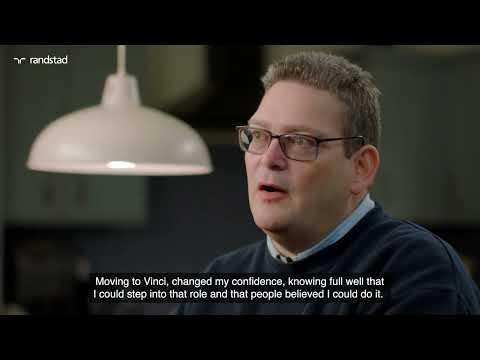Whether you've stayed in the same line of work for years or have changed careers, your professional skill set has probably grown and expanded. As with all things, change is inevitable.
In fact, the employment landscape itself has changed dramatically over time, especially in 2022. Just ask the nearly 10,000 UK workers, 163,000 employees globally, and 6,000 employers we surveyed to bring you this information.
Your wants and needs have never been in sharper focus, and this relates to every facet of work, including your ability to perform that work.
Some of these abilities may be job specific, while others are transferable skills, like effective leadership and critical thinking abilities.
So what are these desirable skills, exactly? And how can they truly serve you? Keep reading to find out this and more.
What are transferable skills?
While some transferable abilities are soft skills like communication and relationship development, some are hard skills like coding, data analysis, or other technological skills. These are skills you may use in any job, regardless of your title or industry.
Did you know that 91% of professionals agree soft skills are highly valuable in their future of recruitment?
Think of these skills as the vital parts of your career tool belt, parts that you develop in every aspect of employment, be it volunteering, freelance work, internships, or traditional full-time employment. You should be able to take these skills and apply them to any professional context.
Why they’re important
Transferable skills can be like gold dust on your CV or resume. Even if you don't strictly meet all the requirements of a job, you could still persuade a recruiter that you're right for the job solely based on your job skills. By being able to handle a variety of tasks and projects, as well as diverse scenarios, you're implying that you can contribute exceptionally to the business.
Types of transferable skills
Plenty of transferable skills are multi-faceted and interconnected. This can make them complicated to pinpoint, but we'll touch on how to find your skills in a moment. For now, let's look at the various areas a transferable skill may fall into.
General skills
General skills are great because they're very flexible and adaptable. They're also some of the easiest to learn or teach yourself. These are particularly good skills if you're looking to move into education.
Not only that, they're useful for a variety of settings and scenarios.
Here are a few examples:
- Creativity
- Logical reasoning
- Organisation
- Self-motivating
- Writing
- Adaptability
- Multi-tasking
Did you know that media and marketing rely heavily on these skills and it's one of the world's top performing sectors?
Interpersonal skills
Emotional or social intelligence and interpersonal abilities are frequently linked. These help us develop relationships with our coworkers, managers, and clients. They are, undoubtedly, essential for building social connections and ensuring a smooth working environment.
While some people may be naturally talented in the realm of interpersonal skills, these qualities can still be grown and mastered separately. Some great examples include:
- Conflict resolution
- Patience
- Empathy
- Emotional intelligence
- Teamwork
- Dependability
Management skills
Competent management and leadership are essential to the growth of any company. This doesn't just apply to how projects pan out, but how a business takes care of its staff, how they function, and their ability to generate revenue.
Though typical management skills have changed over time, their fundamentals remain constant. These ensure that the company is in expert hands and that everyone feels they're on "a safe ship."
The following are examples of management skills:
- Leadership
- Planning
- Assertiveness
- Providing feedback
- Strategy thinking
Communication skills
How well you convey, process, and receive information are all measures of your communication skills. These qualities can help you work faster, deal with conflict, and enhance your interpersonal and management skills. In the age of digital platforms, it's crucial to have the ability to communicate clearly.
This means these skills are in even more demand than ever before. Let's look at some examples:
- Listening skills
- Public speaking
- Clarity
- Storytelling
- Presenting
Clerical skills
We relate clerical skills to admin tasks and are essential for a seamless operation. For a variety of roles, including assistants, admin officers, office managers, and social care workers, being proficient in these skills can be crucial. Some of the best examples include:
- Data entry
- Filing
- Planning
- Time management
- Typing
- Computer literacy
IT skills
Technical and IT skills typically require training and experience, but they are invaluable in a modern company. The right IT and computer skills can boost your earning potential and your marketability as a candidate.
You don't need to know how to code, you just want to have some of these skills under your belt:
- Digital marketing
- Analytical skills
- App knowledge
- Technical writing
Finding your career skills
There are several benefits to knowing what your transferable skills are. First, you can have a better understanding of how your current skills correspond with the career routes you may be interested in. Additionally, knowing your skills means you understand where you can improve.
They can have a big impact on your career and they're worth investing in. These steps can help you determine your unique skills:
- Study job profiles and listings
- Do a self-analysis
- Enquire about a performance review
- Complete a skills test
Advancing your career means regularly checking in with your assets and skills. If you're juggling a lot in your personal and work life, it's all too easy to neglect this crucial job. If you make an effort to evaluate your talents, you can strengthen the ones you know are lacking.
All this comes together to help you find the ideal profession, pursue a promotion, or look for a new career change.
Career change options
It's thrilling to change careers, whether you're taking on a new role or changing industries entirely. However, this kind of transition can be overwhelming, especially if you're worried about reductions in salary or your competency.
Why not consider a switch to construction? How about IT and tech? You can even explore the idea of social care work.
- Discover how Shaun moved from an unfulfilling corporate role to a new job for construction leaders, Vinci:
With the right set of transferable skills, you can make all sorts of changes. For example, if you're working as a nurse, you already have a significant number of the skills required to go into teaching. If you're an accountant working in the IT field, it's not a daunting switch to go into technology management.
Working with the right agent or recruiter could mean the difference between a successful job search and one that falls flat. In fact, did you know recruiters are more popular than ever? With 39% of job switches occurring with the help of a recruiter, it's a great opportunity to explore new industries and try new careers.
Looking for a Career Change?
The types of skills you hone matter, but it doesn't mean you have to stay stuck. Transferable skills are your bread and butter. And while it's obviously important to have the hard skills listed in the job description, these aren't always as important as you may think.
If you’re looking for more information, advice or even real life case studies on how to successfully change your career, check out our career changes resource hub for more information.

